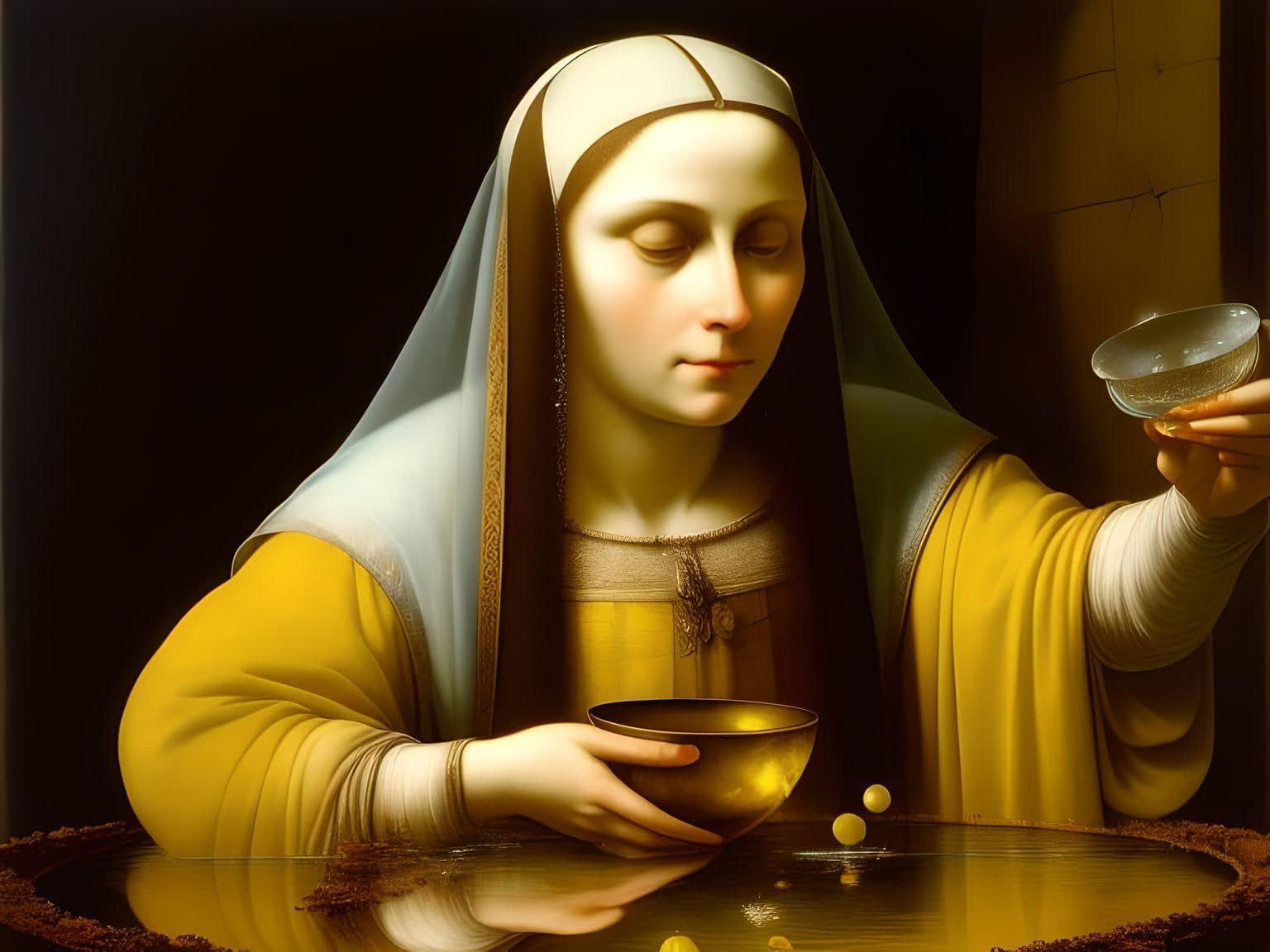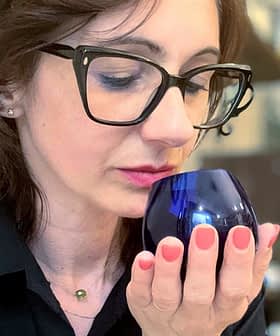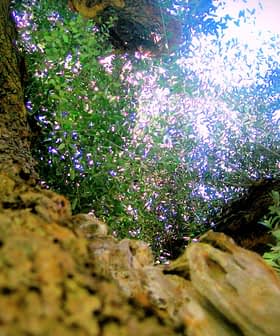Did Someone Give You the Evil Eye? There's One Way to Find Out
You got a strange look just before everything started to go wrong. Better grab your olive oil and know for sure.
 1.9M reads
1.9M readsOlive oil has numerous health benefits, but it is also believed to protect against the evil eye, a curse thought to cause bad luck or misfortune in various cultures around the world. The evil eye can be tested for using a traditional method involving olive oil and water, although there is no scientific evidence to support its accuracy.
The health benefits of olive oil are well documented – from protecting the heart to preventing skin cancer and so much more. But were you aware of olive oil’s role in warding off the evil eye?
This fascinating notion of the evil eye dates back to ancient times. It is still an integral part of many cultures in the Middle East, West Africa, Central America, Asia and the Mediterranean. Consequently, it is woven into all the major religions — Islam, Judaism, Christianity, Hinduism, and Christian Orthodox.
Some theorize that Alexander the Great was partially responsible for disseminating the idea of the ‘evil eye’ – the concept spreading east in parallel with his empire.
The evil eye is believed to cause bad luck, injuries, and even death. Sometimes it is done unintentionally, simply because of jealousy or dislike of the victim.
Here are some common signs that are said to indicate that someone has cast an evil eye on you:
- Unexpected bad luck or misfortune
- Sudden physical illness or pain
- Mental or emotional distress
- Unusual fatigue or weakness
- Financial problems or loss of wealth
- Loss of appetite or disturbed sleep
- Unexplained accidents or mishaps
- Difficulty in relationships or communication
It is important to note that these symptoms could also result from other causes and may not necessarily mean you have been cursed.
Various amulets, also known as nazars, and talismans are used to ward off the evil eye; these come in all sorts of shapes and sizes — blue eyes, disks and balls worn on the person or kept on their property. They can also be seen on the prows of many Mediterranean boats — the staring eyes are meant to deflect the wicked gaze back onto the perpetrator.

Nazars (charms against the evil eye) sold in a shop in Quincy Market, Boston, Massachusetts
The evil eye is a curse believed to be cast by a person’s eyes. It is thought to cause bad luck or misfortune to the cursed person. There are many ways to test for the evil eye, but one of the most common is the oil test.
You will need a glass of water, olive oil, and a spoon to perform the oil test. Fill the glass with water and place a drop of olive oil on the water’s surface. If the oil floats, there is no evil eye. However, if the oil sinks, the evil eye is believed to have been cast.
What is the evil eye?
The Evil Eye is a belief or concept that exists in many cultures around the world. It is believed to be a curse or harmful effect caused by someone giving you a malevolent or envious look or stare, usually unintentionally. The belief is that the look or stare can cause harm or misfortune to the recipient, such as illness, bad luck, or other negative outcomes. The Evil Eye can be found in various forms in many cultures, from the Mediterranean region to parts of Africa, Asia, and Latin America. In some cultures, people wear protective talismans or amulets to ward off the Evil Eye, and some perform rituals or use charms to protect themselves from its effects. The belief in the Evil Eye has persisted for centuries, and even today, some people take it very seriously and believe in its power.
There are a few variations of the oil test. In one method, you place two drops of olive oil on the water’s surface. If the drops remain separate, then there is no evil eye. However, if the drops merge, the evil eye is believed to have been cast.
Another variation involves placing three or nine drops of olive oil on a plate of water. If the oil drops become larger and eventually dissolve in the water, then the evil eye is believed to have been cast. If the drops remain separated from the water in small circles, there is no evil eye.
The test is not scientific. It is a traditional folk remedy used to detect the evil eye. No scientific evidence supports the claim that the oil test is accurate.
The oil test is often performed privately by a healer or a person believed to have special knowledge about the evil eye, accompanied by a secret chant or prayer.

AI-generated conceptual illustration
Those among the ancient Romans and the civilizations they conquered who found themselves without the safeguard of their protective amulet would resort to crude sexual hand gestures to avoid the evil eye.
While the original meaning may have been lost, many of these gestures are still used today.
If you are concerned that you or someone you know has been cursed with the evil eye, you may want to consult with a healer or a traditional practitioner.
The comments largely reflect personal experiences and inquiries, with some readers asking for advice on identifying or dealing with the “evil eye.” A few comments touch on spiritual or superstitious beliefs, such as references to witchcraft and the power of the evil eye. Some comments were written in Italian and French, seeking advice on how to verify or remove the evil eye, while others expressed frustration with not understanding its effects. There is a clear interest in the topic from different cultural perspectives, with many questioning the validity of the phenomena or seeking solutions to a perceived problem.
Share this article










